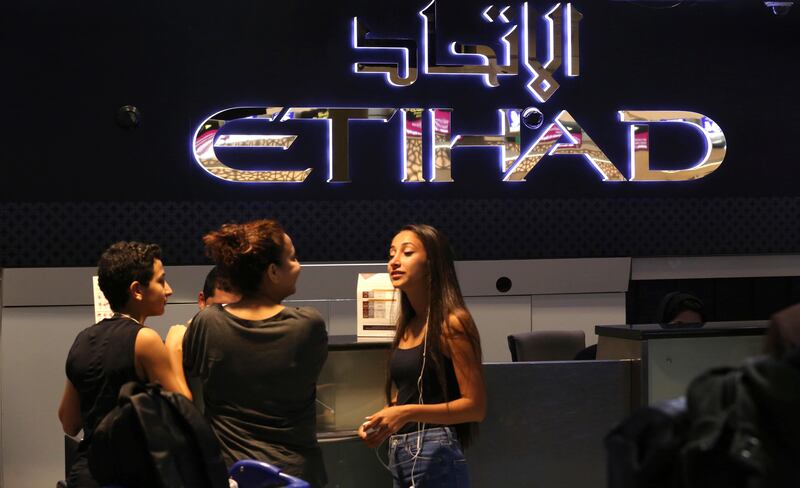Qatar Airways on Thursday joined other Arabian Gulf airlines in getting off a US ban on laptops and large electronics in airplane cabins.
Qatar Airways said that with "immediate effect, all personal electronic devices can be carried on board all departures from Hamad International Airport to destinations in the United States".
The first passengers travelling to the United States from Dubai and Istanbul on Wednesday morning were allowed to carry their electronic devices.
Emirates Airlines and Turkish Airlines had their ban lifted on US-bound flights, with aviation experts saying they expect more countries to follow suit in the US' lifting of the laptop ban. But that will also mean tighter security measures across airports.
"The lifting of the ban is conditional on the airport establishing a process of screening devices 'larger than a smartphone', in line with the guidance material provided from the Transportation Security Administration (TSA) agency of the US Department of Homeland Security," said Captain Darren Straker, former head of air accident investigation at the GCAA and an independent investigator at Straker System Safety.
"The use of sophisticated tomography imaging devices for X-ray and ultrasound screening in addition to robust security measures is the preferred solution. These additional security measures are agreed with the TSA, monitored for compliance and audited for effectiveness."
He said it seemed that for other countries listed on the TSA banned list to have the ban lifted they would have to impost the same imposing additional audited security measures as in the UAE and Turkey.
"In this case, all other banned countries could be removed from the list, providing the infrastructure and security system meets the TSA requirements.
"One caveat for this though is that there are some countries on the list which probably do not have the required infrastructure," Mr Straker said.
Turkish Airlines said that more than 81,000 electronic devices, 75 per cent of which were laptops, were collected from passengers on more than 1,000 flights throughout the 102 days of the ban.
"Though it remains unclear what actions were necessary to get the electronics ban lifted, I think this shows it may be likely that other nations will be able to comply as well," said Phil Derner, founder of NYCAviation.com.
"Regardless of its political motives or influences, aviation safety must be a joint effort between the nations on both ends of the route. There is great concern about the idea of passengers needing to place their laptops in checked bags due to the increased threat of fire from lithium ion batteries. This means the removal of the ban also alleviates this safety concern, which arguably could be a more prevalent and likely threat versus a terror attack," Mr Derner said.
Others said they estimate more flights will be added to the airlines' operations.
"Added passenger traffic will push a sharp rebound in load factors and I can see Emirates reinstating services to cities like Boston and Seattle, for example - cities that had frequencies reduced in the wake of demand falling due to the travel ban and electronic device ban," said Saj Ahmad, chief analyst at StrategicAero Research in the United Kingdom.
"Security will obviously be longer and tighter, but passengers would rather that than have their devices taken off them and risk being damaged."
Capt Straker said the solution in the near future would be the use of enhanced technology. "Aviation risk regarding protecting the barriers to access for potentially damaging devices on board an aircraft is an evolving threat, where the controls and methods used to detect the devices are a technological gateway," he said. "For example, the use of tomography imaging devices for X-ray and ultrasound screening, when employed, will detect 100% of all suspect devices screened."
A UK Transport Authority spokesperson said that the safety and security of the travelling public was its top priority. "It is for the US to determine its own security measures based on its own assessments, just as we do ourselves," he said. "We work closely with all our international partners to keep aviation security under constant review. All governments have a responsibility to ensure the safety and security of their citizens."
Read more on this topic
> UAE: Emirates says US flight laptop ban lifted
> World news: Regional airlines expect electronics ban to be lifted






